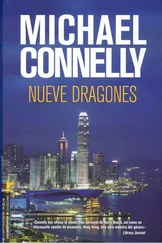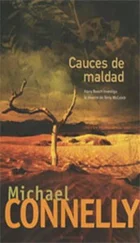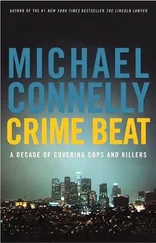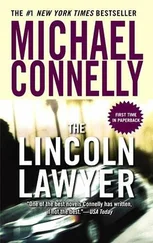She closed the book. “Why have they let you talk to me?”
“Let’s say you’re a special case, I have connections, and Donald has money.”
She stood, and walked to the window. Taller than I’d thought from the snapshot, leaner and sturdier. A woman who could ride a horse all day with a baby on her back and a rifle over her shoulder. None of which would help her here. She looked out at the shining glitz of Las Vegas. “My name is Aimur Imin. I’m a Uighur from Kashgar.”
“Yet the Chinese sent you abroad for an education. Isn’t that unusual?”
She turned. “What do you know about the Uighurs?”
“You’re a Turkic people of Central Asia, mostly in China, and you’re Muslims.”
“An ancient Turkic people long before we were Muslims. We rode with Ghengis Khan and Timur, perhaps with the Huns.Nomadic warriors and sheepherders who have mostly settled down and become farmers. The Han Chinese want to destroy our ethnic identity and our culture. The Han don’t recognize anyone else on earth as people, and they want to assimilate us.”
“Like the Borg in the Star Trek television show?”
She smiled. “There is a similarity. One of China’s ways is to offer a Han and Western education to special Uighurs who will then teach Han and Western culture to Uighur children. I am half Han, so I was the perfect candidate.”
“But to yourself you’re all Uighur, have no intention of helping the Han, and somehow they found out.”
“It would seem so.”
“What’s the name of your ‘terrorist’ organization?”
“Uighurstan Liberation Organization.”
“Which is now on our attorney general’s list of terrorist groups.”
She shrugged. “We have never acted against anyone but the Han, never attacked civilians, never acted outside Central Asia, but your government wants China as an ally in your war on terrorism, so we are now terrorists.”
I said, “I look at you, and I see a highly educated, sophisticated, independent woman. Someone ethnicity should sit lightly on, if it sits at all, and who knows as well as anyone that Uighurstan is a remote dream in today’s world.”
She sat down again on the edge of her bunk. “Do you know Kashgar?” She caressed the word, Kashgar, as if it were the name of a lover.
“I know it’s a city on the Silk Road.”
“We call the ancient trade route the Golden Road. The Golden Road to Kashgar, to Samarkand, to India, to ancient Rome, to the entire world. Kashgar lies between the deserts to the east, and twenty-thousand foot mountains to the west. The Chinese arrived to claim us in your first century A.D. Kashgar had already been a trading center of the known world for over a thousand years. Marco Polo came and rediscovered Kashgar for Europe in 1274, when it was over two thousand years old.” Her intense eyes could see the deserts and the mountains and the two thousand years. “We’ve been governed by Ghengis Khan’s Mongols, Timur himself, many Turkic empires, and, from time to time, by the Chinese who never controlled us forlong. The last Turkic kingdom was that of the great Yakub Beg, who was not Turkic but a Tajik general who made Kashgar the center of a kingdom in 1865, and remained there, opening ties with Britain, until 1876 when the Chinese came again. In 1930 my grandfather and a Chinese Muslim general declared a Republic of East Turkestan, but the Chinese came once more. The Chinese always come.”
She could see the Chinese. “I will tell you two stories. In Kashgar, the tomb of Abakh Hoja, an Islamic prophet who died in 1639, is a great hall with a dome of brilliant green tiles. Also in the hall is the tomb of his granddaughter, Iparhan. She was captured by one more Chinese army in the mid-eighteenth century, and taken to the Forbidden City to be concubine to the Qing emperor. But she cried every day for her desert home, and rejected all his advances. Some legends say she refused him for twenty-five years, others that she survived less than a year, but in the end she killed herself. The devastated emperor sent her in death on the three-year return journey to Kashgar. She is known in Chinese history as Xiang Fei, the Fragrant Concubine. When I disowned my Han father, I changed my Han name to Xiang Fei.”
She began to pace the tiny cell. “The second is modern. In 1953 the Chinese sent a thousand soldiers into the desert of our remote Xinjiang, and told them to build a city. There were wolves, heat, little water, and they lived in holes in the ground, as many of your own early pioneers did. They used cannon as plows, machine guns to mark furrows, and they built Shihezi that is now a city of six hundred thousand. It has movie theaters, visiting music and dance groups from eastern China, a Mandarin radio and TV station that broadcasts only within Shihezi, and the population is ninety percent Han. There are no minorities in Shihezi, and nearby villagers are not allowed to enter.”
She let the silence in the cell stretch for a full minute. “In their eyes, the Han are your westward pioneers in a thousand Hollywood movies. We are the Indians.”
By noon the next day I was in L.A. in Jeffries’s office. I told him everything I knew, and everything Aimur Imin had said.
Jeffries radiated outrage. “She’s no threat to the U.S.! For God’s sake, she’s one of the people for whom we demand democracy. You get Norris to write the story, and I’ll get her into court.”
I wasn’t as optimistic. In anxious times of fear, crisis and hysteria-real, imagined, or invented-standing up against the tide is not the way to get ahead. “Norris will write the story, but the bureau chief is right. There’s a good chance the Times won’t publish it, and judges aren’t in a human rights mood these days.”
“You find out all you can about these Uighurs and the Chinese, and I’ll find a federal judge who doesn’t believe in suspending the constitution for any reason.”
I said, “Maybe you won’t want to, John. When I reported to my client, he wasn’t all that pleased to have been right. He’s suddenly not certain his father’s going to foot your bill, and he’s not so sure he wants him to. He doesn’t seem as enamored of Aimur Imin as he was of Xiang Fei. Maybe because taking an unpopular position won’t help his father sell a lot of widgets.”
“Yeah,” Jeffries said with disgust. “So this one I do pro bono. I never really wanted to be rich. She’ll be back in class in a month, trust me.”
I wanted to believe him, but Aimur Imin and her Uighurs were the Indians, and it’s not only in revolutions that eggs are broken. Deserts and oases vanish, small animals become extinct, societies are destroyed, and people disappear and die in the march of progress, the building of empires.
KILLER HEELS KILL TWICE AS DEAD by T. P. Keating
The great thing about revenge is that, once decided upon, there’s not a great deal else to consider. Like a topless show, innovation isn’t necessary.
For stranding me in the Red Rock Mountains, for making memiss the TV audition in Los Angeles today, there’d be a huge price to pay. On the drive back to the city, I stopped my beat-up sedan to stretch my long legs and take the late morning desert air. A nearby burro regarded me, standing next to one of the evenly spaced creosote bushes that gave the valley floor a curiously gardenlike, arranged appearance. My pink spandex bikini, fishnet hose, and eight-inch heels no doubt drew its attention. For showgirl Lilah Starr, morning, even late morning, is a rarely sighted beast.
I’d determined to become Vegas personified. A place that feeds off the intoxicating rush of blood to the head, a red liquid that keeps the predator alive in the midst of arid desolation. That liquid now fueled the engine of my hate. I slipped into a less attention-grabbing outfit of gold hotpants and halter top before driving on. The donkeylike creature twitched its furry ears and maintained the cool stare at my departure. I decided to add the stubbornness of the burro to my approach.
Читать дальше












